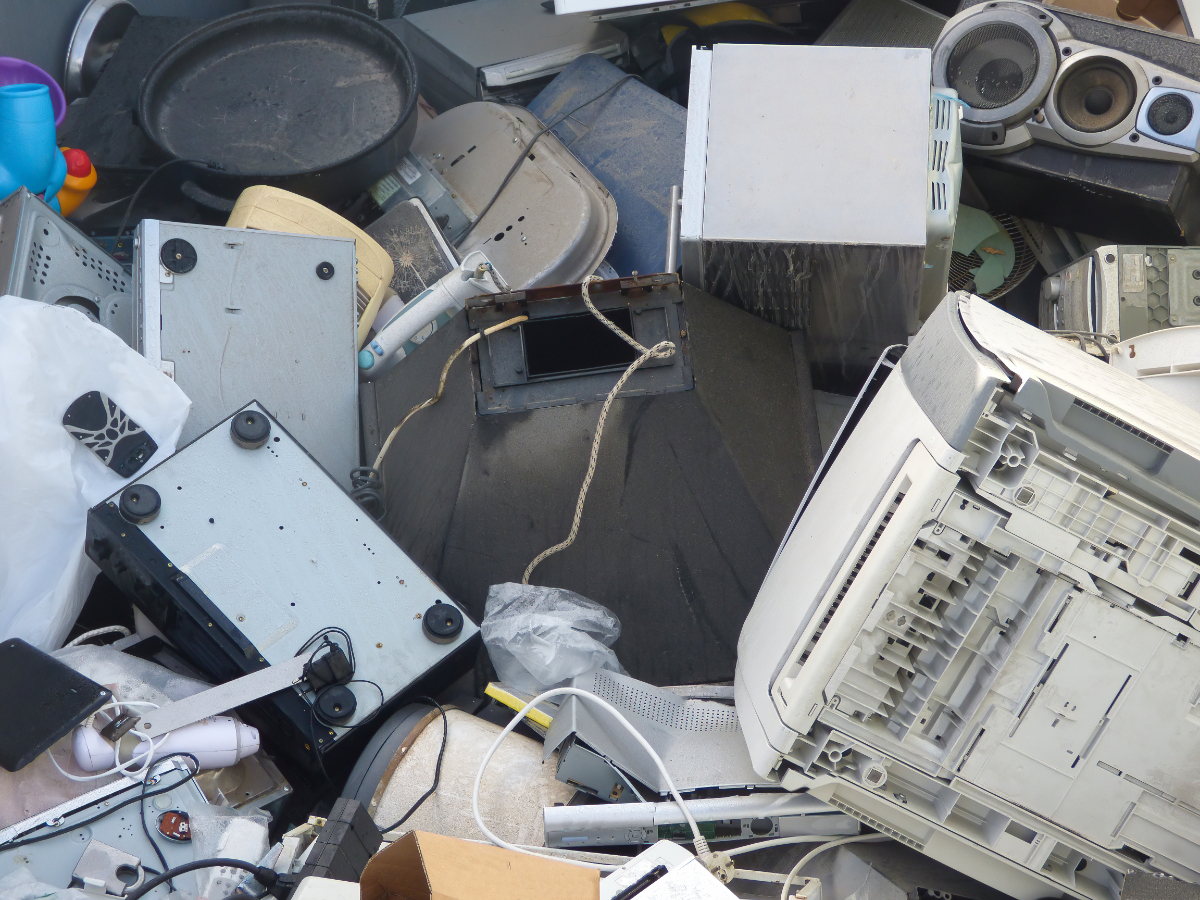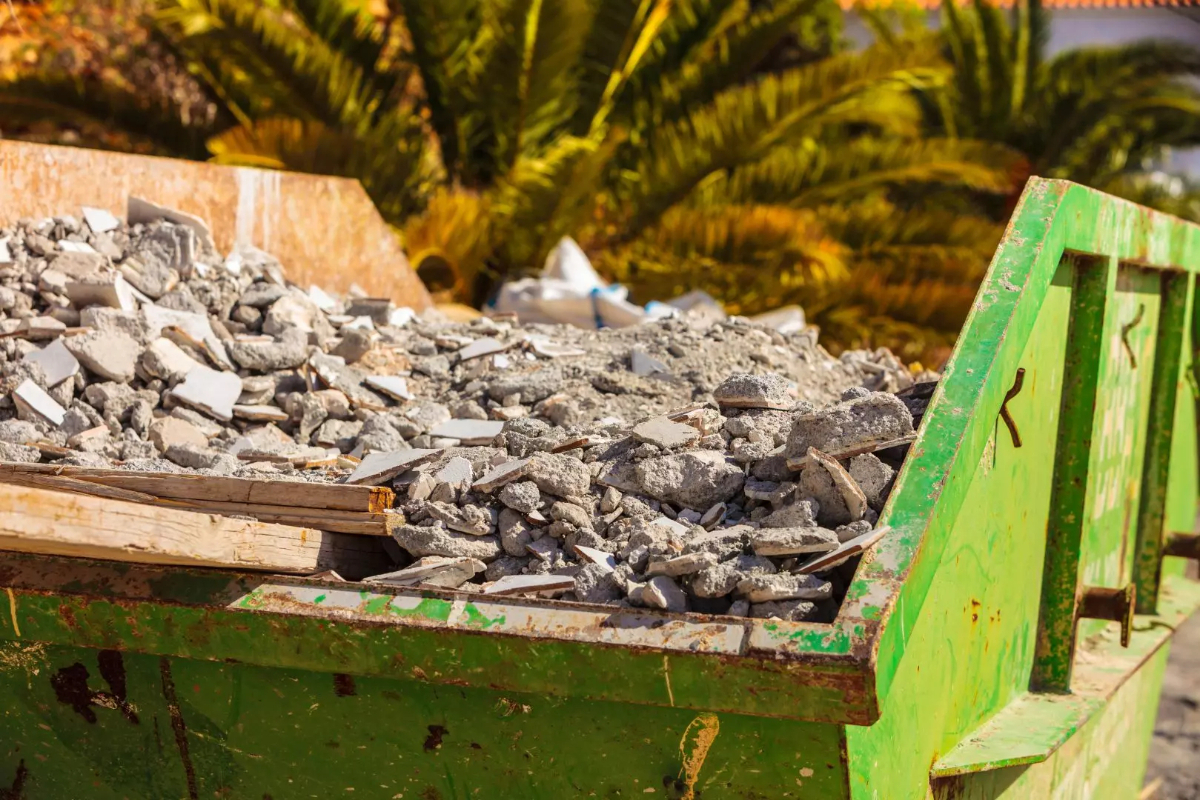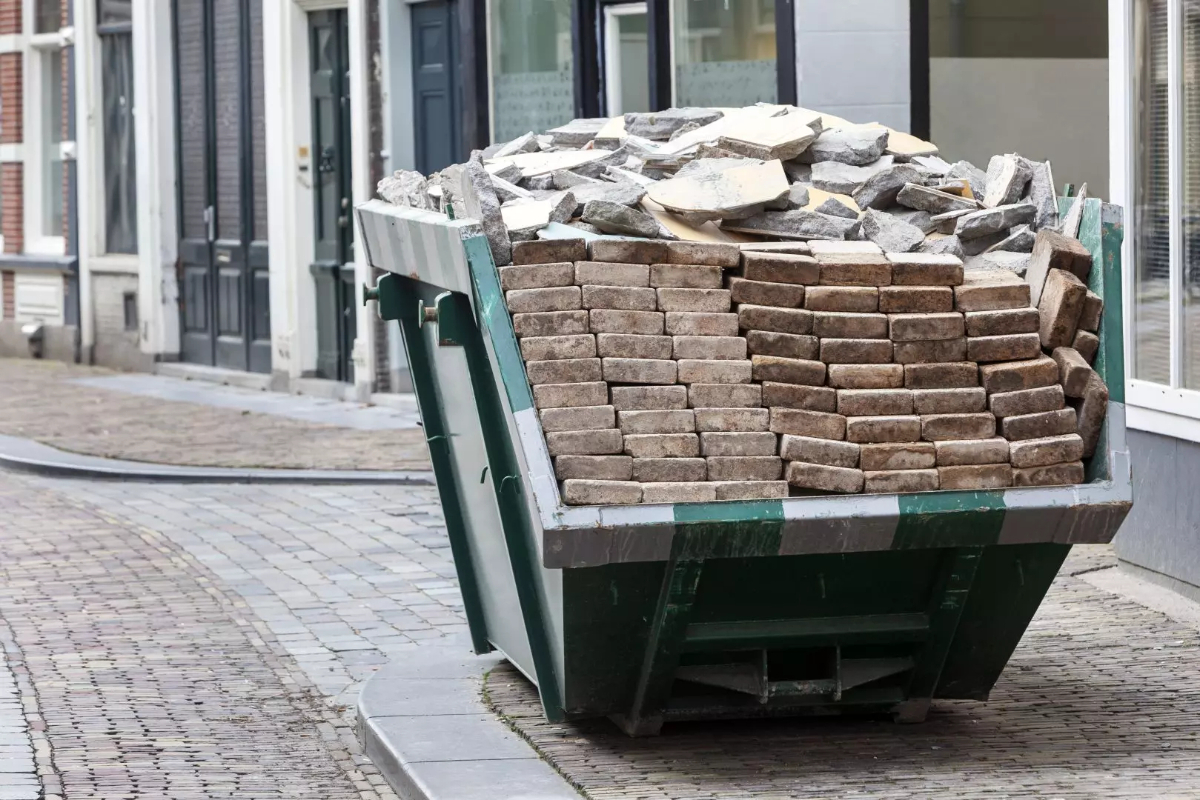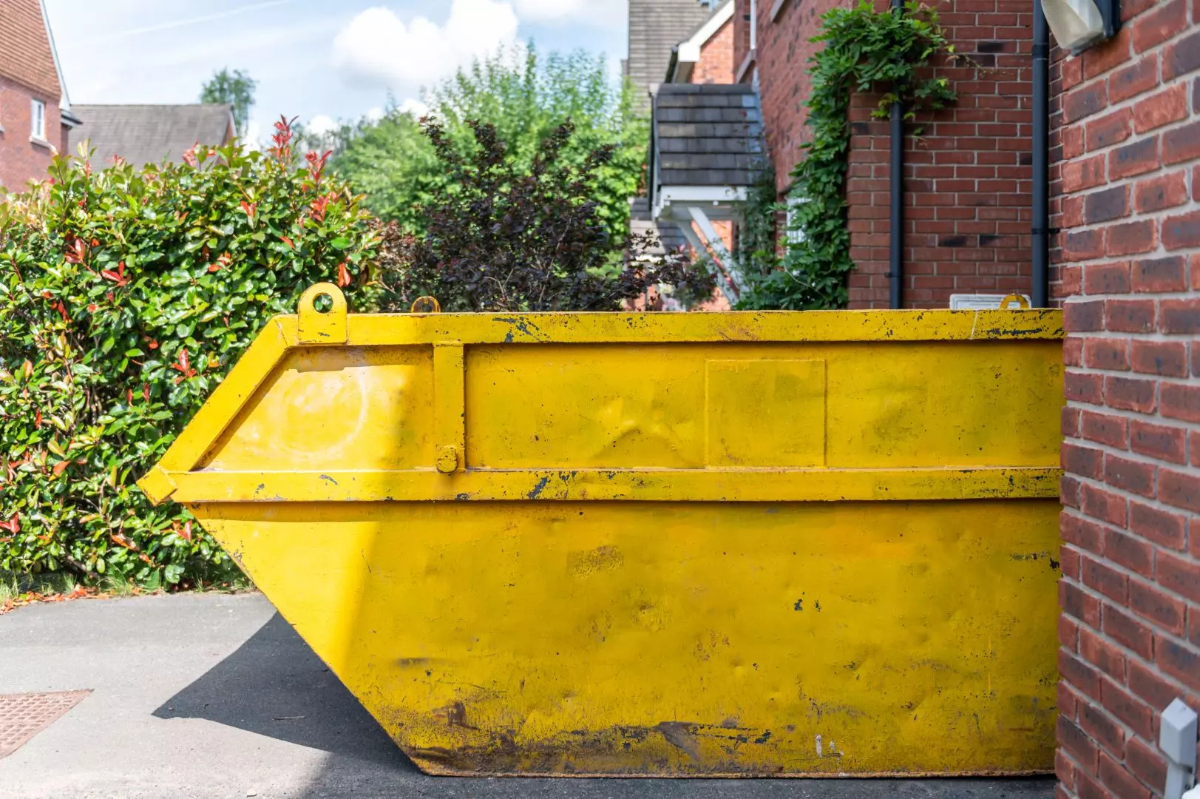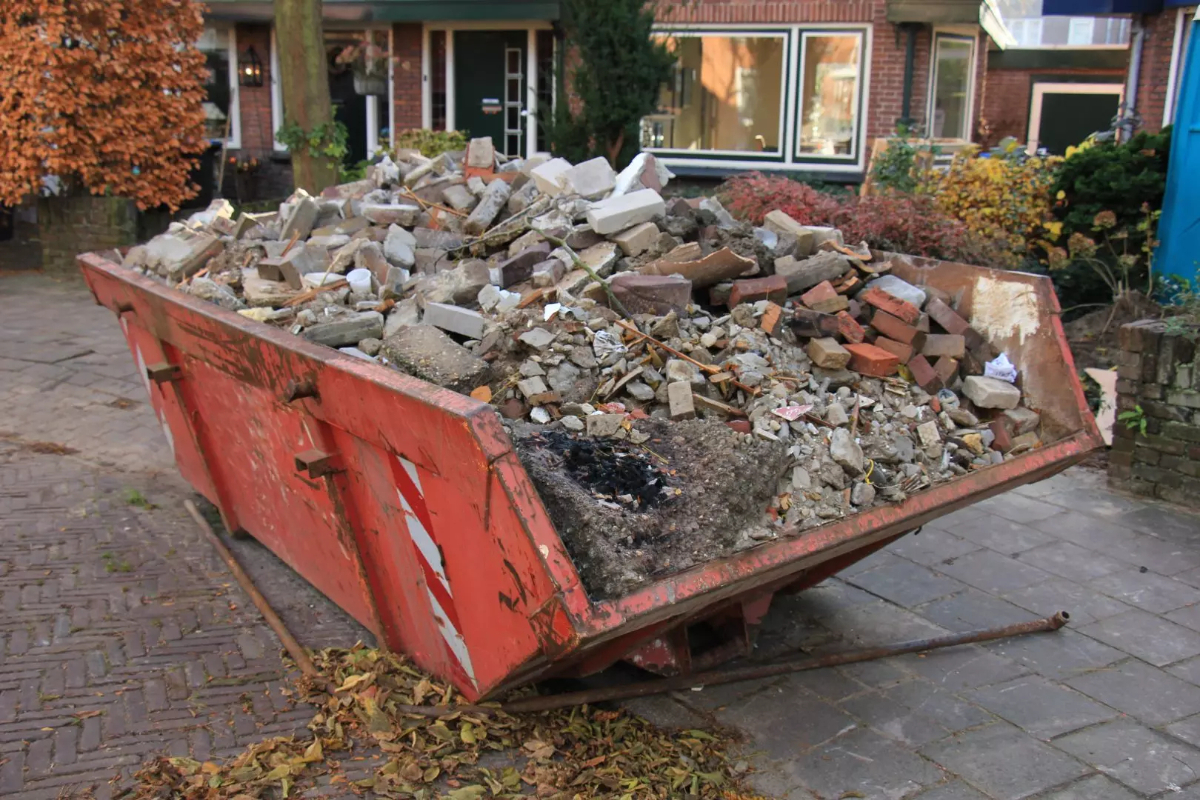This article looks at what you can and can't put in a skip. Find out more about the types of waste that can be placed in a mini skip.
Why Can’t Electrical Waste Go In A Skip?
Proper waste disposal is crucial for safeguarding the environment and public health, and understanding what can and cannot be placed in a skip is essential to uphold these principles. One key category of waste that should never be tossed into a skip is electrical waste, commonly referred to as "e-waste.
"Electrical waste encompasses a wide range of items, including electronics like computers, televisions, smartphones, kitchen appliances, and power tools. These items often contain hazardous components such as heavy metals, toxic chemicals, and rare elements.
When e-waste is improperly disposed of, these harmful substances can leach into the soil and water, posing a serious threat to ecosystems and human well-being. The reasons electrical waste can't go in a skip are multifaceted.
Firstly, e-waste requires specialised handling and recycling procedures due to its complex composition. Skips are typically designed to hold general waste and construction debris, lacking the facilities and processes needed to extract valuable materials from electronic items.
Moreover, some electrical items may still be functional or repairable, making them suitable for donation or resale. Tossing them in a skip prematurely not only contributes to unnecessary waste but also denies others the opportunity to benefit from these items.
To responsibly manage e-waste, many local authorities and recycling centres offer separate collection points or scheduled pickups for these items. This ensures that electronics are safely dismantled, valuable materials are recovered, and hazardous components are disposed of appropriately.
Keeping electrical waste out of skips is a critical step in promoting sustainable waste management. By adhering to proper e-waste disposal guidelines, we can help protect the environment, conserve valuable resources, and contribute to a cleaner and healthier future.
Can Garden Waste Go In A Skip?
In the UK, the guidelines for what can and cannot be placed in a skip are crucial to ensure environmental responsibility and legal compliance. When it comes to garden waste, it's generally acceptable to dispose of it in a skip, but there are some important considerations to keep in mind.
Garden waste that can typically go in a skip includes grass clippings, leaves, branches, hedge trimmings, and other organic materials. However, it's recommended to separate these items from other types of waste, such as construction debris or household rubbish.
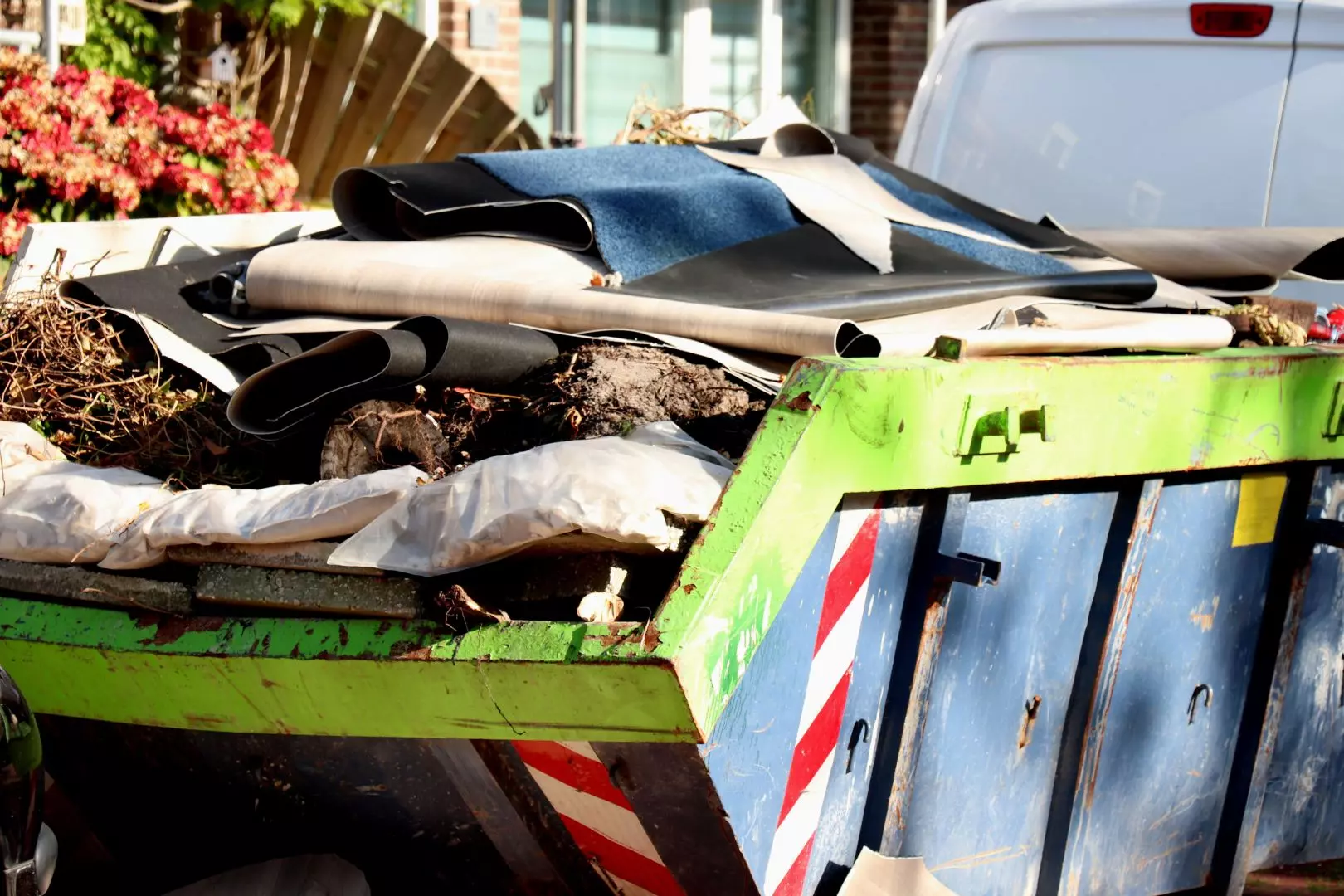
Some skip providers may have specific skips designated for green waste, promoting efficient recycling and composting. Nevertheless, not all garden waste is suitable for a skip. Items like soil, large tree stumps, or invasive plant species may not be accepted due to potential contamination risks or difficulties in recycling.
Additionally, skips should never be filled with hazardous materials like chemicals, paint, or asbestos, as these pose a significant threat to both human health and the environment. While garden waste can generally be placed in a skip, it's essential to adhere to the regulations set forth by your skip provider and local authorities. By following these guidelines, you can contribute to responsible waste disposal and help protect the environment for future generations.
Main Items That Can't Go In A Skip
Understanding what items are not allowed in a skip is essential for responsible waste disposal in the UK. While skips are convenient for various types of waste, certain materials should never be thrown into them due to environmental, safety, and legal concerns.
Hazardous Waste: Items containing hazardous materials, such as asbestos, paint, solvents, batteries, and chemicals, must not go in a skip. These substances can cause harm to human health, contaminate soil and water, and pose risks during transportation and disposal.
Electrical Waste (E-Waste): Electronics like computers, TVs, and appliances contain valuable components and potentially harmful substances. E-waste requires specialised recycling to extract precious metals and prevent toxic materials from polluting the environment.
Refrigerators and Freezers: These appliances often contain refrigerants that can be harmful if released into the atmosphere. Proper disposal and removal of refrigerants are crucial to prevent ozone depletion and greenhouse gas emissions.
Medical Waste: Items such as needles, syringes, and medical equipment must not be disposed of in a skip. Proper medical waste management is crucial to prevent infections, injuries, and contamination.
Tyres: Discarded tyres can be a breeding ground for pests and are challenging to compact in skips. Many local authorities have specific disposal methods for tyres due to their potential environmental impact.
Gas Cylinders: Empty or full gas cylinders can be dangerous in skips due to the risk of explosion or fire. Specialised disposal methods are necessary to ensure safe handling.
Liquids: Liquids like oils, paints, and chemicals can leak from skips, posing environmental hazards. Proper disposal channels are available to manage liquid waste safely.
By being aware of these prohibited items and following local waste disposal guidelines, we can contribute to sustainable waste management, reduce environmental impact, and prioritise the well-being of our communities.
Can You Put A Mattress In A Skip?
In the UK, placing a mattress in a skip isn't always straightforward due to its bulk and potential impact on waste disposal. While some skip providers allow mattresses in their containers, many have specific guidelines for their disposal.
If your skip provider permits mattress disposal, it's recommended to inform them beforehand. Mattresses take up considerable space in skips, which can affect the overall waste capacity and disposal efficiency.
Additionally, if your mattress is significantly worn or damaged, it might not be suitable for a skip due to potential complications during transportation and disposal.
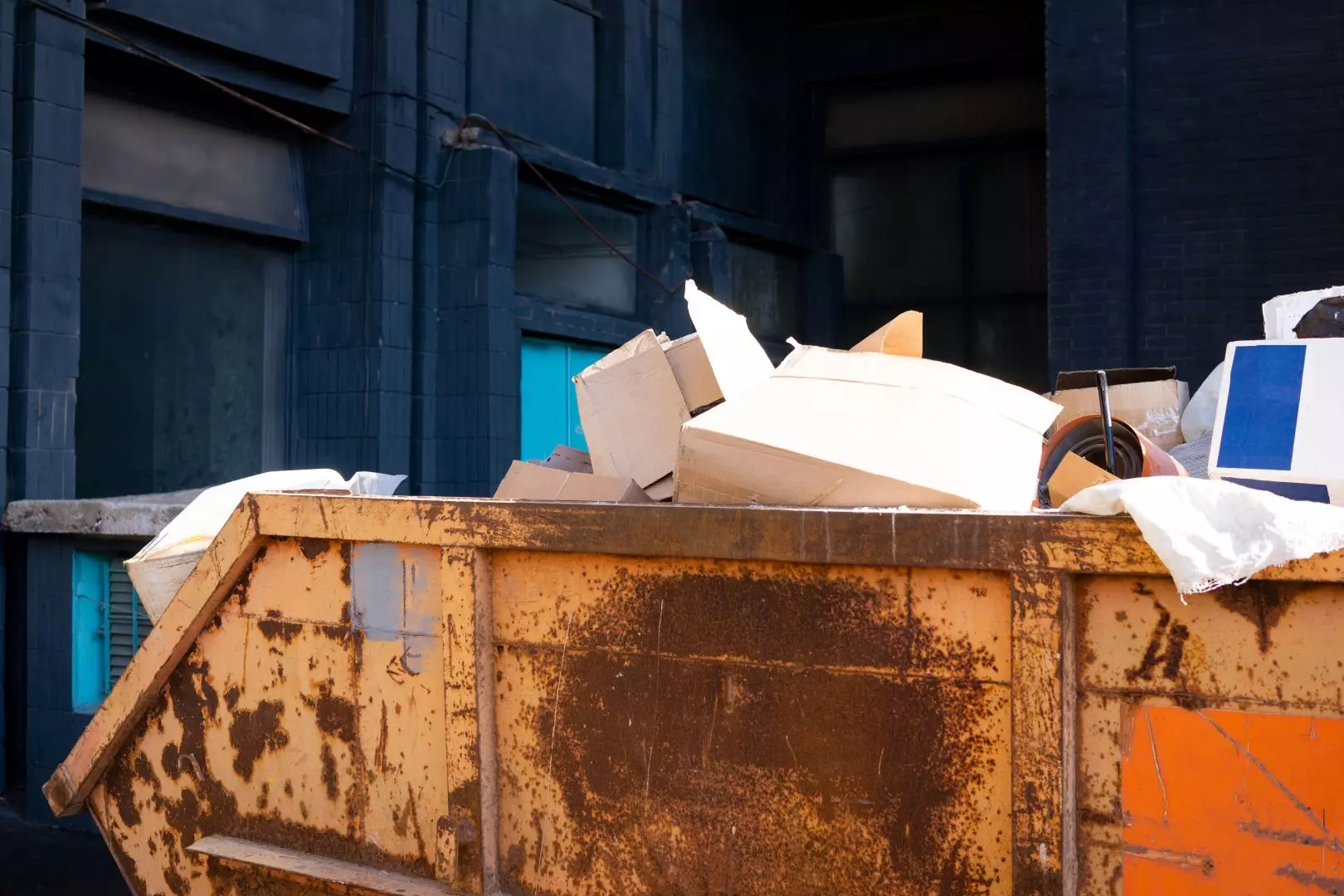
Some local councils and recycling centres offer separate collection or drop-off points for mattresses. This approach ensures proper recycling and disposal, as mattresses are often composed of various materials, including metal springs and foam, which can be recycled when properly dismantled.
If your skip provider doesn't allow mattresses or if you're uncertain, it's best to explore alternative options. This might include contacting your local council for guidance on mattress disposal methods or exploring mattress recycling services. By adhering to these guidelines, you can contribute to responsible waste management and promote eco-friendly practices while keeping your living environment clutter-free.
No Personal Information Or Sensitive Data
Navigating the intricacies of waste disposal in the UK requires a comprehensive understanding of what items are permitted and what are strictly prohibited in skips. However, one critical facet that demands heightened awareness pertains to the exclusion of personal information and sensitive data from skip contents, a practice that aligns with both legal obligations and ethical responsibilities.
In an age where information is a valuable currency, disposing of documents containing personal details, financial records, or other sensitive information in a skip can inadvertently open the door to identity theft, privacy breaches, and financial fraud.
The consequences of such oversights can be far-reaching, affecting not only individuals but also businesses and organisations. To fortify your defences against these potential threats, a straightforward yet potent approach emerges: shredding.
Before discarding any documents containing sensitive data, it's prudent to render them indecipherable through shredding. Many local authorities and recycling centres extend paper shredding services, providing a secure pathway for the destruction of sensitive documents.
For businesses operating in the UK, adherence to stringent data protection regulations, such as the General Data Protection Regulation (GDPR), isn't just a legal mandate – it's a foundational principle. Mishandling personal data during waste disposal not only exposes companies to fines but can erode customer trust and tarnish a brand's reputation.
As the digital landscape expands, so does the realm of potential vulnerabilities. Electronic devices, often repositories of significant personal and business-related data, should never be casually discarded into skips. Hard drives, USB drives, memory cards – these devices carry a digital footprint that requires specialised handling. Ensuring proper data erasure or destruction is essential to maintaining data security.
Embracing these proactive measures empowers individuals, businesses, and organisations to reinforce their privacy safeguards, protect confidential data, and foster a culture of responsible waste management.
By engaging in secure shredding services for paper documents and availing of electronic waste recycling facilities, you not only shield sensitive information but also advocate for environmental preservation – embodying a comprehensive and conscientious approach to waste disposal practices in the UK.
Discover affordable solutions for waste disposal with our cheap skip-hire services in Manchester. Manchester Skip Solutions provide efficient and reliable skip rental services, catering to all your waste management needs with professionalism and expertise.

